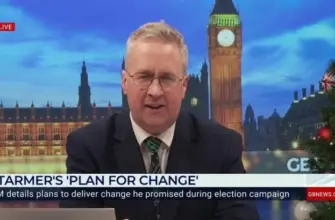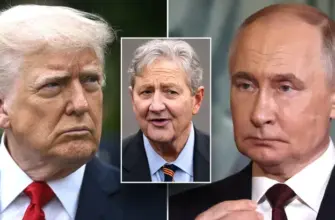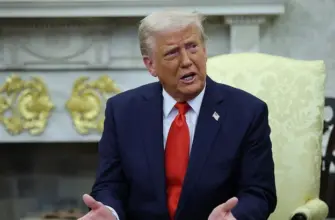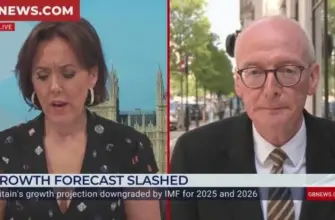During a recent electoral debate, Prime Minister Mark Carney asserted that former U.S. President Donald Trump represents the most significant challenge facing Canada today.
Carney made this assertion in response to his conservative opponent, Pierre Poilievre, who had previously criticized him for perceived similarities to outgoing former Prime Minister Justin Trudeau. “This election [is about] the question of who will succeed and who will face up to Trump,” Carney stated, according to a Reuters translation.
The Prime Minister emphasized the gravity of the situation, reportedly adding, “We are in a crisis. The most serious crisis of our lives. We have to react with strength, which will allow us to succeed with Trump.”
Carney secured his position as leader of the Liberal Party last month through a decisive victory, and he is currently considered the frontrunner in the upcoming nationwide election, though recent polls indicate a tightening race.
The political landscape shifted dramatically following Trudeau’s departure. The Liberal Party had initially been predicted to suffer substantial losses against Poilievre’s Conservative Party; however, anxieties surrounding potential trade conflicts with the United States—particularly Trump’s pronouncements regarding tariffs and even suggestions of annexing Canada—have galvanized renewed support for the Liberals under Carney.
Analysts now view Carney as potentially better equipped to navigate the complex negotiations required to mitigate the impact of Trump’s recently imposed tariffs. Poilievre, on the other hand, has reportedly seen a decline in support due to his “Canada First” message, which some observers perceive as too closely mirroring Trump’s “America First” approach.
Furthermore, Poilievre has faced internal criticism for what is perceived as a slow response to the challenges posed by the U.S. president.
The race for prime minister appears to be intensifying, with voter preferences split along several lines:
- Canadians primarily concerned about the cost of living tend to favor Poilievre.
- Voters prioritizing economic stability and Canada’s relationship with the United States lean toward Carney.
Poilievre has been an active figure in Canadian politics since entering Parliament in 2004.
Carney’s background, including his leadership roles at both the Bank of Canada (since 2008) and the Bank of England (since 2013), leads many to believe he possesses the necessary expertise to address the financial uncertainties exacerbated by Trump’s trade policies.
In related news, the U.S. Senate recently approved Peter Hoekstra as the next American ambassador to Canada.








